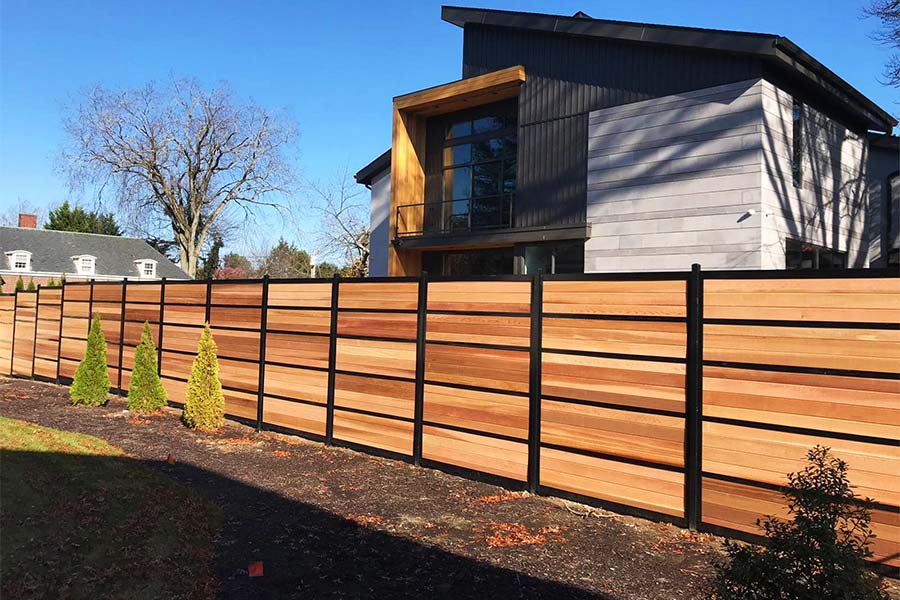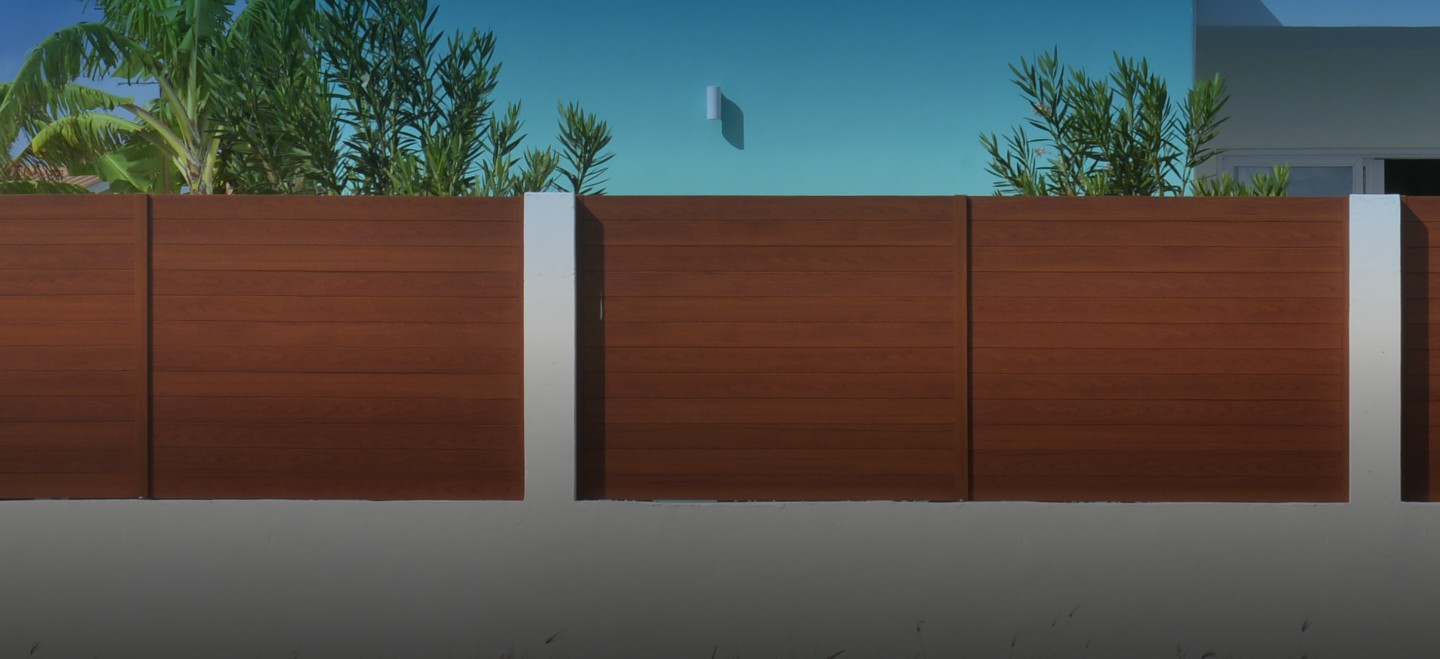All Categories
Featured
Whether it's solid winds, heavy rainfall, or extreme warmth, weather condition can cause substantial damages to your fencing, leading to expensive repairs or also a full substitute. Below are some sensible ideas to safeguard your fencing from weather-related damages.
Vinyl Fencing: Vinyl is immune and extremely resilient to wetness, deteriorating, and warping. It likewise needs little maintenance and can stand up to extreme climate condition without fading or fracturing. Metal Secure fencing: Wrought iron or aluminum fences are solid and resilient against wind and rainfall. Nonetheless, they are vulnerable to corrosion over time otherwise properly safeguarded. Applying a rust-resistant finishing can help maintain their appearance and honesty. Composite Secure Fencing: Made from a mix of timber fibers and plastic, composite fences combine the very best top qualities of both products. They're immune to pest, decay, and rot damage while using the look of all-natural timber. By selecting the right material, you can ensure that your fence is much better furnished to withstand the components.
Wetness Protection: Sealers produce a waterproof barrier, preventing rainfall from leaking into the timber and causing rot or mildew. UV Protection: Stains and sealants block UV rays, which can dry and tarnish the timber. Protect Look: On a regular basis using a safety finish will certainly preserve the fence's natural appeal and prevent staining or fading. To guarantee durable security, reapply sealer or discolor each to two years, depending upon your environment and fencing wear.
![]()
![]()
In addition, cleaning your fencing can assist remove dust, mold, and debris that can trigger lasting damages. For wooden fences, gently stress wash the surface area to get rid of crud, while plastic fences can be cleaned with a light detergent remedy.
Final thought. Your fence is a beneficial investment that supplies aesthetic, safety and security, and personal privacy appeal to your residential or commercial property. By taking aggressive actions to shield it from weather-related damages, you can guarantee its long life and preserve its performance. Whether you're selecting the right products, using safety layers, or reinforcing messages, these simple approaches can help secure your fence from the elements, saving you cash and expanding the life expectancy of your fence for several years to find. Routine assessments and upkeep are key to capturing problems early, so make certain to remain on top of your fencing's care throughout the periods.
- Pick Weather-Resistant Materials. Among the very first steps in safeguarding your fence from weather-related damages is picking the ideal material. Some products are normally more immune to the aspects, reducing the need for constant repair services. :
Vinyl Fencing: Vinyl is immune and extremely resilient to wetness, deteriorating, and warping. It likewise needs little maintenance and can stand up to extreme climate condition without fading or fracturing. Metal Secure fencing: Wrought iron or aluminum fences are solid and resilient against wind and rainfall. Nonetheless, they are vulnerable to corrosion over time otherwise properly safeguarded. Applying a rust-resistant finishing can help maintain their appearance and honesty. Composite Secure Fencing: Made from a mix of timber fibers and plastic, composite fences combine the very best top qualities of both products. They're immune to pest, decay, and rot damage while using the look of all-natural timber. By selecting the right material, you can ensure that your fence is much better furnished to withstand the components.
- Secure Wood Fences with Sealers and Discolorations. Wooden fencings are especially at risk to moisture, UV rays, and extreme temperature levels. Gradually, these aspects can result in decomposing, warping, and fading. To safeguard your timber fencing from these issues, applying a premium wood sealer or discolor is necessary. Right here's exactly how this aids:
Wetness Protection: Sealers produce a waterproof barrier, preventing rainfall from leaking into the timber and causing rot or mildew. UV Protection: Stains and sealants block UV rays, which can dry and tarnish the timber. Protect Look: On a regular basis using a safety finish will certainly preserve the fence's natural appeal and prevent staining or fading. To guarantee durable security, reapply sealer or discolor each to two years, depending upon your environment and fencing wear.

- Enhance the Fence Posts. To avoid this, think about enhancing your fence blog posts by mounting concrete grounds or making use of stronger products for article anchors. If you live in an area with hefty winds or seasonal frost, this included security will certainly aid shield your fencing from damages.
- Cut Surrounding Plant Life. Tree branches and vines expanding near or over your fence can create substantial damages in rainy climate. Not only will this secure your fence, but it will additionally improve the total appearance of your lawn.
- Use Windbreaks. Wind is a major variable in weather-related fencing damage. A windbreak acts as an obstacle that lowers the direct influence of wind on the fencing, preventing damages from high winds and gusts.

- Address Water Drainage Issues. Poor drain is a significant factor to fence damages, particularly for wooden fencings. Water that collects around the base of fence messages can trigger them to rot gradually. Make certain that the ground around your fence has appropriate water drainage so water does not pool and create wear and tear. Including or setting up a french drain gravel around the base of the posts can aid route water far from the fencing. This simple repair can make a significant difference in protecting against dampness damage and preserving your fence.
- Routine Assessments and Upkeep. Routine upkeep is critical for protecting your fencing from climate damage. Inspect your fence regularly, especially after extreme weather condition events, to recognize any signs of damage. Search for loosened boards, leaning messages, or corrosion on metal elements. Catching tiny problems early can avoid them from developing into bigger, more expensive repairs.
In addition, cleaning your fencing can assist remove dust, mold, and debris that can trigger lasting damages. For wooden fences, gently stress wash the surface area to get rid of crud, while plastic fences can be cleaned with a light detergent remedy.
- Use a Rust-Resistant Layer to Steel Fences. Metal fences, particularly those made of iron or steel, are prone to rust when subjected to wetness and humidity. To safeguard your steel fence from corrosion, use a rust-resistant finish or paint.
Final thought. Your fence is a beneficial investment that supplies aesthetic, safety and security, and personal privacy appeal to your residential or commercial property. By taking aggressive actions to shield it from weather-related damages, you can guarantee its long life and preserve its performance. Whether you're selecting the right products, using safety layers, or reinforcing messages, these simple approaches can help secure your fence from the elements, saving you cash and expanding the life expectancy of your fence for several years to find. Routine assessments and upkeep are key to capturing problems early, so make certain to remain on top of your fencing's care throughout the periods.
Latest Posts
Don’t Miss Special Auto Repair Specials in Chicago at Montclare Auto Repair
Published en
1 min read
Safeguard Your Investment with Professional Gutter Installment
Published en
1 min read
Discover the Storied Past of Deauville Inn: From Speakeasy to Seafood Haven
Published en
2 min read
More
Latest Posts
Don’t Miss Special Auto Repair Specials in Chicago at Montclare Auto Repair
Published May 25, 25
1 min read
Safeguard Your Investment with Professional Gutter Installment
Published May 22, 25
1 min read
Discover the Storied Past of Deauville Inn: From Speakeasy to Seafood Haven
Published May 20, 25
2 min read